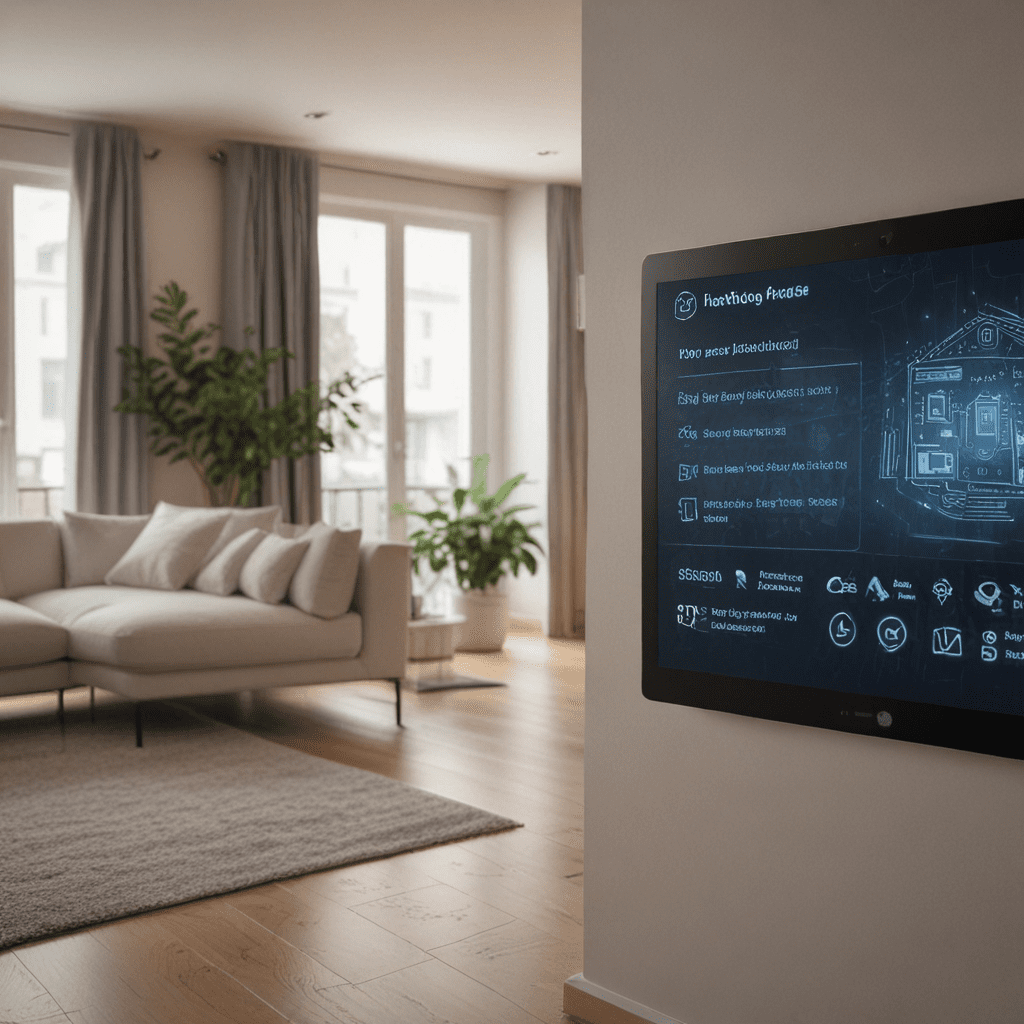
Introduction
Smart homes are on the rise, and with them comes the increased collection of personal data. This data can include everything from your location and movements to your sleep patterns and even your conversations. While smart homes can offer many benefits, including convenience, comfort, and security, it's important to be aware of the potential privacy risks involved.
The Rise of Smart Homes and the Expansion of Data Collection
Smart homes are becoming increasingly popular as more and more devices are connected to the internet. These devices can include everything from smart speakers and thermostats to security cameras and door locks. As more devices are added to the smart home, so too is the amount of data that is collected.
Types of Personal Data Collected by Smart Home Devices
Smart home devices can collect a variety of personal data, including:
- Location and movement: Smart home devices can track your location and movement through GPS, Wi-Fi, and Bluetooth.
- Sleep patterns: Smart home devices can track your sleep patterns through sleep trackers, smart beds, and other devices.
- Conversations: Smart home devices with microphones can record your conversations, even when you're not aware of it.
- Health data: Smart home devices can collect your health data through fitness trackers, smart scales, and other devices.
- Financial data: Smart home devices with access to your financial accounts can collect your financial data, such as your account balances and spending habits.
Data Privacy Risks Associated with Smart Homes
The data collected by smart home devices can be used to track your movements, habits, and preferences. This data can be used for a variety of purposes, including:
- Targeted advertising: Smart home devices can be used to target you with personalized advertising based on your interests and habits.
- Surveillance: Smart home devices can be used to track your movements and activities, even when you're not aware of it.
- Identity theft: Smart home devices can be used to steal your identity by collecting your personal information, such as your name, address, and birthdate.
- Physical harm: Smart home devices can be used to cause physical harm by controlling your home's systems, such as the locks and lights.
Data Security in Smart Homes
It's important to take steps to secure your smart home devices and protect your personal data. Here are a few tips:
- Use strong passwords: Use strong passwords for all of your smart home devices.
- Enable two-factor authentication: Enable two-factor authentication for all of your smart home devices that support it.
- Keep your software up to date: Keep the software on your smart home devices up to date to patch any security vulnerabilities.
- Be aware of what data is being collected: Be aware of what data is being collected by your smart home devices and how it is being used.
- Disconnect devices when not in use: Disconnect your smart home devices from the internet when you're not using them.
Privacy Regulations and Legal Protections for Smart Home Data
There are a number of privacy regulations and legal protections in place to protect smart home data. These regulations vary by country and jurisdiction, but they generally include:
- The right to access your data: You have the right to access the data that smart home devices collect about you.
- The right to correct your data: You have the right to correct any inaccurate or incomplete data that smart home devices collect about you.
- The right to delete your data: You have the right to request that smart home devices delete your data.
- The right to opt out of data collection: You have the right to opt out of data collection by smart home devices.
Consumer Concerns and Ethical Considerations
Consumers have a number of concerns about the privacy risks associated with smart homes. These concerns include:
- The potential for surveillance: Smart home devices can be used to track your movements and activities, even when you're not aware of it.
- The potential for data breaches: Smart home devices can be hacked, allowing criminals to access your personal data.
- The potential for misuse of data: Smart home device manufacturers could use your data for purposes that you don't consent to.
Best Practices for Protecting Data Privacy in Smart Homes
There are a number of things you can do to protect your data privacy in smart homes. These include:
- Research before you buy: Do your research before you buy a smart home device to make sure that it has strong privacy protections.
- Read the privacy policy: Read the privacy policy of any smart home device before you install it to understand how your data will be collected and used.
- Use strong passwords: Use strong passwords for all of your smart home devices.
- Enable two-factor authentication: Enable two-factor authentication for all of your smart home devices that support it.
- Keep your software up to date: Keep the software on your smart home devices up to date to patch any security vulnerabilities.
- Be aware of what data is being collected: Be aware of what data is being collected by your smart home devices and how it is being used.
- Disconnect devices when not in use: Disconnect your smart home devices from the internet when you're not using them.
The Future of Data Privacy in Smart Homes
The future of data privacy in smart homes is uncertain. As smart homes become more popular, there will likely be increasing pressure on smart home device manufacturers to improve their privacy protections. However, it is important for consumers to be aware of the potential privacy risks associated with smart homes and to take steps to protect their data.
Conclusion
Smart homes offer a number of benefits, but it's important to be aware of the potential privacy risks involved. By taking steps to protect your data privacy, you can enjoy the benefits of smart homes without compromising your privacy.
FAQs
Q: What are the biggest privacy risks associated with smart homes?
A: The biggest privacy risks associated with smart homes include the potential for surveillance, data breaches, and misuse of data.
Q: What can I do to protect my data privacy in smart homes?
A: You can protect your data privacy in smart homes by researching before you buy, reading the privacy policy, using strong passwords, enabling two-factor authentication, keeping your software up to date, being aware of what data is being collected, and disconnecting devices when not in use.
Q: What is the future of data privacy in smart homes?
A: The future of data privacy in smart homes is uncertain. As smart homes become more popular, there will likely be increasing pressure on smart home device manufacturers to improve their privacy protections. However, it is important for consumers to be aware of the potential privacy risks associated with smart homes and to take steps to protect their data.


